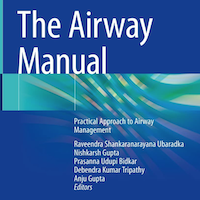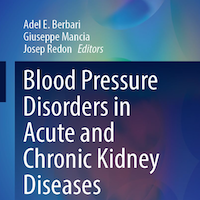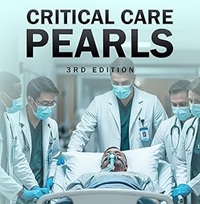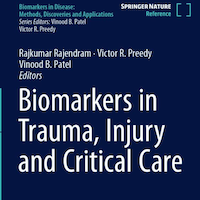Tag: corticosteroids
Beyond the Pressure: Moving Toward Personalized Sepsis Care
In the high-stakes environment of septic shock, the current clinical "gold standard" remains the early initiation of norepinephrine. However, when blood pressure targets aren't met, the next steps often become a pragmatic... read more
Less Steroids, Better Outcomes: High-Dose Corticosteroids Harm ICU COPD Patients
A large pharmacoepidemiologic cohort study of over 17,000 US patients admitted directly to ICUs for acute exacerbations of COPD revealed that two-thirds received high-dose systemic corticosteroids (>240 mg/day methylprednisolone... read more
Refining Neuromuscular Blockade Use in ARDS
Acute Respiratory Distress Syndrome (ARDS) remains a critical challenge in medicine, persistently linked to mortality rates exceeding 30% despite extensive research over the years. The lack of effective drug treatments means... read more
Systemic Corticosteroids for Inflammatory Disorders in Pediatrics
This comprehensive volume provides current state of the art of the use of corticosteroids in the pediatric patient. It consists of 14 chapters written by leading authors from different countries. The first chapters cover... read more

Breadth of Antibiotics Trumps Dose and Duration in Driving ICU Superbugs
In a large prospective cohort study across four ICUs (422 patients enrolled from March 2024 to January 2025), 35.8% of patients acquired carbapenem-resistant Gram-negative bacteria (CR-GNB) during their stay. Using sophisticated... read more
Steroids Save Lives in Severe Pneumonia and ARDS – Without Spiking Superbug Risk
A rigorous new systematic review and meta-analysis of 20 high-quality trials (3,459 patients) confirms that low-dose, short-course systemic corticosteroids significantly reduce short-term mortality in both severe pneumonia... read more
Corticosteroids in ARDS: Delaying High-Dose Methylprednisolone Doesn’t Kill
This large retrospective study investigated whether starting high-dose (2 mg/kg) methylprednisolone therapy after 14 days of Acute Respiratory Distress Syndrome (ARDS) onset increased the risk of complications or mortality... read more
Postoperative Steroids Linked to Longer Time on Ventilator
Postoperative use of systemic corticosteroids was linked to a longer duration of mechanical ventilation (MV), but it did not increase mortality or overall complications. While the study's initial analysis did not show... read more
Neurally Adjusted Ventilatory Assist Decreases the Requirement of Corticosteroids
This study aimed to evaluate the incidence of bronchopulmonary dysplasia (BPD) and the dosage of corticosteroids in extremely preterm infants with the implementation of neurally adjusted ventilatory assist (NAVA). This... read more
Femoral Head Osteonecrosis in Post-COVID-19 Patients
This study provides an insight into the relationship between COVID-19-related factors and the development of osteonecrosis of the femoral head (ONFH), emphasizing the critical role of cumulative steroid dose as the primary... read more
Cytomegalovirus Infection Adverse Impact on ICU Outcomes in COVID-19 Patients
In critically ill patients with SARS-CoV-2 pneumonia, cytomegalovirus (CMV) infection was frequently observed, and associated with increased ICU and hospital mortality. CMV co-infection correlated with a higher incidence... read more
COVID-19 vs non-COVID-19 Patients Without Hematological Malignancies Treated for Invasive Pulmonary Aspergillosis
COVID-19-associated pulmonary aspergillosis (CAPA) patients have less comorbidities and higher fungal burden compared to Putative Invasive Pulmonary Aspergillosis (PIPA), but clinical outcomes are similar between groups.... read more
Methylprednisolone vs. Hydrocortisone in Septic Shock Patients
Corticosteroids play an important role in the management of septic shock patients, especially in those with higher doses of vasopressor. However, the therapeutic benefits of corticosteroids are not limited to hydrocortisone... read more
Thiamine and Ascorbic Acid in Sepsis and Septic Shock
Exploring the individual and synergistic effects of ascorbic acid and thiamine on key pathways implicated in sepsis pathophysiology has not yielded unequivocal evidence supporting their use without concomitant corticosteroids. Heterogeneity... read more
Postoperative Liver Dysfunction After Lung Transplantation with Extracorporeal Life Support and 1-year Mortality
In this retrospective cohort study, we identified an elevated 1-year mortality rate among patients who developed postoperative liver dysfunction, as defined by the presence of HLD, DILI-like symptoms, and cholestasis subsequent... read more
Handbook of Corticosteroids
Corticosteroids are a class of steroid hormones which are mainly produced in the adrenal cortex of the vertebrates but are also synthesized artificially. They ease redness, itching, swelling and allergic reactions. There... read more

Evaluation Effects of Nebulized Hypertonic Saline and Nebulized Corticosteroids in Patients with ARDS
Acute respiratory distress syndrome (ARDS) is a common clinical syndrome of acute respiratory failure as a result of diffuse lung inflammation and oedema manifested by hypoxemia and stiffness in the lungs. This study... read more
Corticosteroid Therapy and Pulmonary Embolism in Polytrauma Patients
Pulmonary embolism is a frequent complication in polytrauma patients. The aim of our study was to evaluate the effect of low-dose corticosteroid therapy on the incidence of pulmonary embolism (PE) in polytrauma patients.... read more

Predictors of Functional Impairment in Severe COVID-19 Patients Two Months After Discharge
The Post-COVID-19 Functional Status (PCFS) scale is a validated tool for assessing functional impairment in COVID-19 patients. While this retrospective monocentric study identified multiple risk factors associated with... read more
Managing Blood Glucose Control in the ICU
Current evidence supports avoiding iatrogenic factors that aggravate hyperglycemia, such as early-PN and liberal corticosteroid use, and does not support TGC, except with accurate tools and protocols that prevent iatrogenic... read more
Microbial Dynamics and Pulmonary Immune Responses in COVID-19 Secondary Bacterial Pneumonia
Secondary bacterial pneumonia (2°BP) is associated with significant morbidity following respiratory viral infection, yet remains incompletely understood. In a prospective cohort of 112 critically ill adults intubated... read more
Corticosteroid Treatment and Survival in Critically Ill COVID-19 Patients
Our multinational study identified three distinct clinical COVID-19 phenotypes, each exhibiting marked differences in demographic, clinical, and immunological features, and in the response to late and short-term corticosteroid... read more









